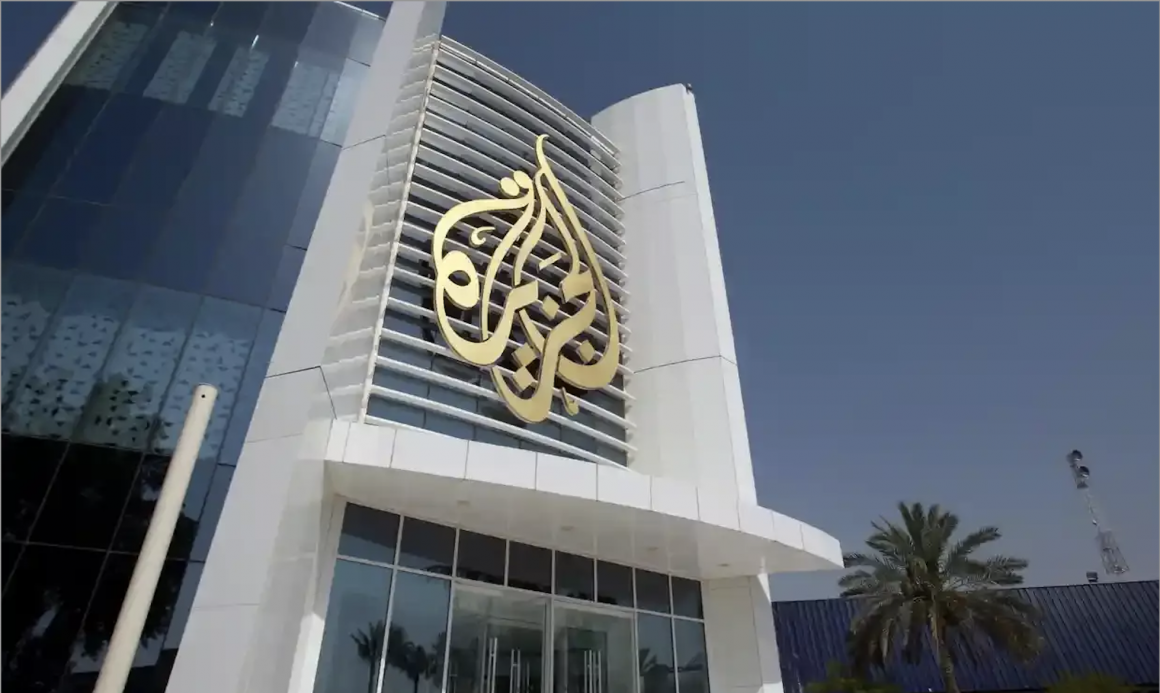An Al Jazeera presenter is the latest journalist to be criticised for his comments about refugees and those fleeing the war in Ukraine.
In a recording of a live broadcast that has gone viral, Al Jazeera English’s news presenter Peter Dobbie has been criticised for making offensive comments about Arabs and North Africans.
During the interview, while describing scenes of thousands of Ukrainians fleeing the war, the presenter said; “What is compelling is that just looking at them, the way they’re dressed. These are prosperous, middle class people, these are not obviously refugees trying to get away from areas in the Middle East that are still in a big state of war. These are not people trying to get away from areas in North Africa. They look like any European family that you would live next door to.”
The insinuation that people in the MENA region are more acceptable as refugees, and that none of those who fled wars in Syria, Yemen, Iraq and elsewhere were ‘middle class or prosperous’ and the presenter’s assertion that European families are exclusively white shocked and offended many people.
Consequently, the Qatar-based news network has since been under fire with social media users around the world criticising the remarks made during a live interview, with many describing them as racist.
Fellow Al-Jazeera employees were quick to react to the remarks that social media users have described as ‘racist’.
Sana Saeed, a Host and Senior Producer at AJ+, took to Twitter to express her dismay with what was aired on the channel. “As an employee of Al Jazeera, I am horrified to see this. The dehumanization is insidious & everywhere,” said Saeed in a tweet.
Yaser Bishr, the network’s Executive Vice President for Digital also tweeted “This doesn’t represent Al Jazeera and what we stand for. This is being dealt with as we speak.”
On Sunday evening, Al Jazeera’s Public Relations team issued an apology, in a statement they said:
“The presenter’s comments were insensitive and irresponsible. We apologize to our audiences worldwide and the breach of professionalism is being dealt with.”
A source at the network told Doha News that Peter Dobbie was scheduled to be presenting the news on Monday but was taken off the presenting schedule by management. It still remains unclear whether any disciplinary measures will be taken against him.
The double-standards in media coverage
Social media users around the world have been accusing mainstream media outlets of hypocrisy in their coverage of Russia’s invasion of Ukraine compared with other conflicts.
Over the weekend, a number of media organisations were criticised for dehumanising statements made by their journalists or guests.
Britain’s Telegraph newspaper was also on the receiving end of criticism on Saturday. “They seem so like us. That is what makes it so shocking,” wrote journalist Daniel Hannan for the newspaper. “Its people watch Netflix and have Instagram accounts, vote in free elections and read uncensored newspapers. War is no longer something visited upon impoverished and remote populations. It can happen to anyone.”
CBS had to issue an apology for comments made by its correspondent Charlie D’Agata during a CBS News segment. “But this isn’t a place, with all due respect, like Iraq or Afghanistan, that has seen conflict raging for decades.” He describes Ukraine as a “civilized, relatively European” city where one wouldn’t expect this to happen.
BBC was also under fire after Ukraine’s Deputy Chief Prosecutor, David Sakvarelidze was featured as a guest speaker. He stated that the situation in Ukraine is very emotional for him because he is seeing “European people with blue eyes and blonde hair being killed.”
The Arab and Middle Eastern Journalists Association (AMEJA) released a statement condemning the recent derogatory statements made about the Middle East and other regions in the news coverage of Ukraine & Russia.
In the statement, AMEJA said that they reject the “orientalist and racist implications that any population or country is “uncivilized” or bears economic factors that make it worthy of conflict.”
MEJA also called on newsrooms to train correspondents on the “cultural and political nuances of regions they’re reporting on, and not rely on American and Euro-centric biases.”
Follow Doha News on Twitter, Instagram, Facebook and Youtube
